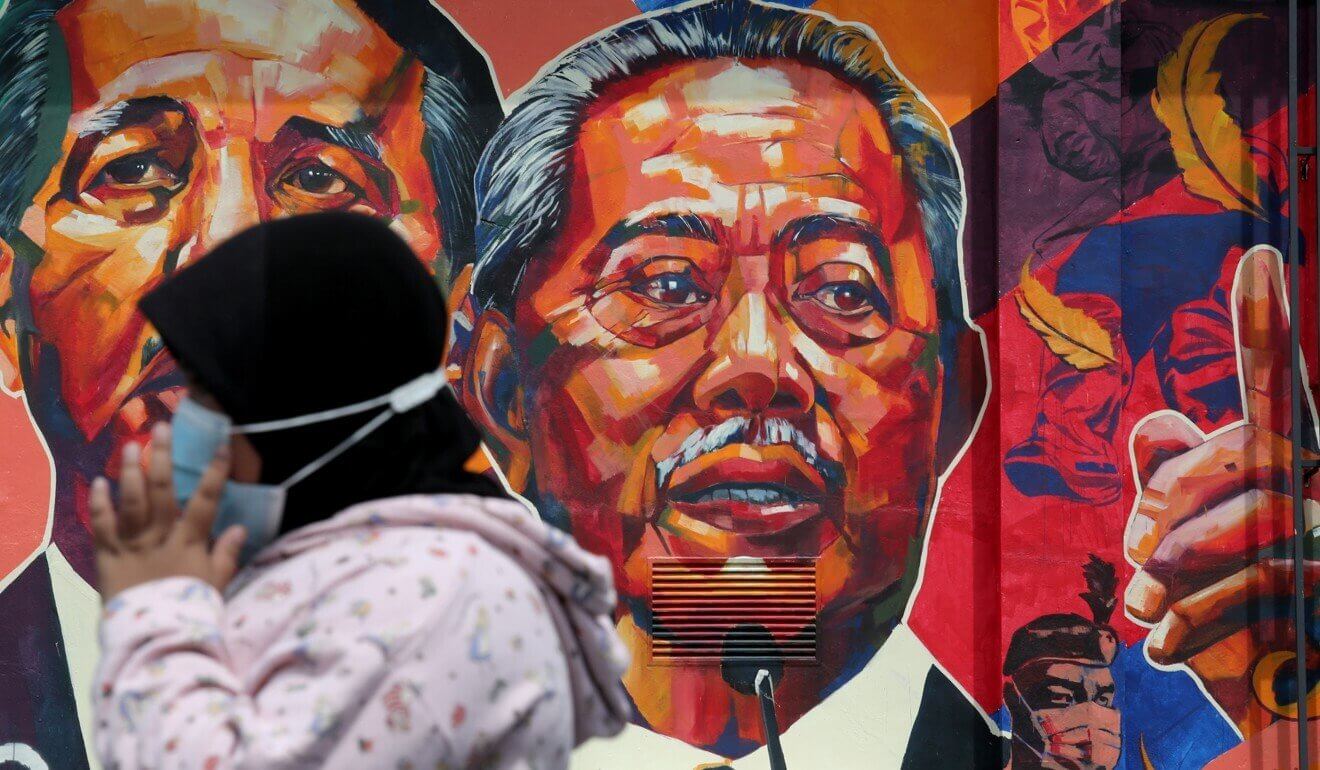Embattled PM Muhyiddin Yassin’s failed bid to declare a state of emergency in Malaysia last week could have marked the end of his tumultuous eight months in power. However, a crucial royal endorsement for his COVID-19 response efforts has meant that he lives to fight another day, and hold on to what is the slimmest parliamentary majority in Malaysian history.
Though King Al-Sultan Abdullah Sultan Ahmad Shah rejected the government’s proposal for an emergency, he did offer the beleaguered government some reprieve and aimed to engender a sense of unity and solidarity. The King called on politicians to refrain from engaging in politicking that could destabilize the leadership’s work towards delivering a budget to help the country deal with the COVID-19 pandemic and to revive the Malaysian economy. Given that statements from the Malaysian monarch are widely interpreted as decrees, analysts say that it is unlikely that lawmakers will defy the royal call and stand in the way of approving critical government spending, even though some opposition MPs view the budget vote as a chance to test the true legitimacy of the Muhyiddin’s administration. This could mean the restoration of some political stability. For now.
However, even if the 2021 budget gets passed later this week (on November 6), it will only offer temporary respite for PM Muhyiddin, whose position still remains precarious. Despite statements of ‘undivided loyalty’ and support from the ruling Perikatan Nasional (PN) coalition, which includes parties such as the United Malays National Organization (UMNO), Parti Islam Se-Malaysia (PAS), Sabah-based Parti Solidariti Tanah Airku (STAR), and Sabah Progressive Party, Muhyiddin still faces pressure from some UMNO members who are unhappy with the unequal power distribution within the cabinet and are tired of playing second fiddle in the alliance with the leader’s Malaysian United Indigenous Party (Parti Pribumi Bersatu Malaysia). The lack of a clear majority also puts the PM in a difficult position, because he does not have enough support to push for reforms. Then there is also the issue of key opposition leader Anwar Ibrahim, who has repeatedly claimed in recent weeks that he has the support needed to take over the prime ministership, and has even submitted documents to the king, supposedly providing proof of the same.
Ironically enough, it is the COVID-19 pandemic that is keeping Malaysia from slipping into complete political mayhem, and from giving the country a third premier in just eight months. Even though former (and scandal-tainted) Malaysian PM Najib Razak has cautioned his party (UNMO) against cooperating with Muhyiddin, claiming that it could hurt their chances in the next election, for now, the once-ruling Malay party has no choice but to work within the framework of the current alliance. This is important, because it cannot afford to be blamed for triggering snap elections, and potentially causing a surge in coronavirus infections, which have already more than doubled in the last month alone. In the aftermath of the public health crisis, however, these existing underlying political tensions could lead to the dissolution of the parliament and an early election. The next general election is currently scheduled to take place in 2023.
While political stability is a favorable objective during this uncertain time, it comes at the expense of Malaysia’s hope for a true democracy, the transition to which was set in motion after a stunning election upset in 2018 that dislodged more than six-decades of UNMO’s political monopoly, ushering in the most multi-ethnic, liberal-minded government Malaysia had ever known. However, after PM Mahathir Mohammed’s administration was ousted earlier this year due to PM Muhyiddin’s defection and subsequent accession to power, experts claim that this hope of democracy seems to have vanished. According to Sophie Lemière of CSIS, the Malaysian people are now looking for economic benefits and stability rather than long-term democratic reforms, thereby “turning back to the ‘new old and old new’: UMNO and its allies”.
This means that PM Muhyiddin will have to tread carefully moving forward in devising a strategy to deal with UNMO to help build a robust and enduring partnership with strong PN allies for the next vote. He must choose carefully between standing firm and risk angering them, or relinquishing some of his party’s power and engaging in a cabinet reshuffle, which Bersatu leaders have been firmly resisting since they do not want to bow down to UNMO. However, despite the recent gains made in Sabah state elections, Muhyiddin could still lose if UNMO withdraws its support in order to improve its own chances of ascending to power once again. Given that it is the largest party in the coalition, the PM needs its backing to stay in power. This gives the UNMO a degree of leverage and control over the ruling party, who must now proceed cautiously in order to avoid antagonizing a key but reluctant partner. Moreover, astonishingly enough, despite massive corruption and abuse of power charges, former PM Najib Razak is still popular among the public, and has been campaigning for UNMO in all by-elections for the last two years, including the recent one in Sabah, building his name as a “man of the people” and pledging “political transparency”.
Former leader Mahathir Mohammed also has a new party, Parti Pejuang Tanah Air (Pejuang), aimed at fighting corruption and defending the rights of the Malays and indigenous ‘bumiputras’. The next few months (following Friday’s budget vote) will be crucial in determining who the main players of the country’s power struggle will be. And if the last few years have shown anything, it is that absolutely anything is possible.
Despite Show of Support from the King, Malaysia’s Political Crisis Is Far from Over
The royal endorsement is only a temporary respite for PM Muhyiddin, who still holds the slimmest parliamentary majority in Malaysian history.
November 4, 2020

SOURCE: SOUTH CHINA MORNING POST
